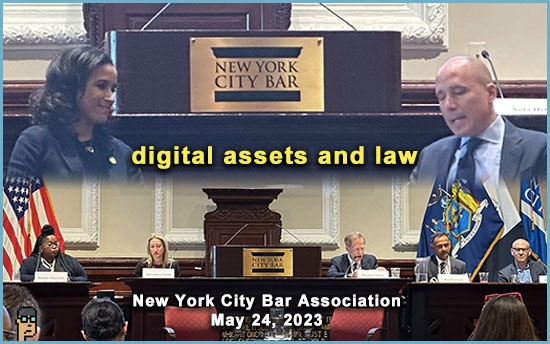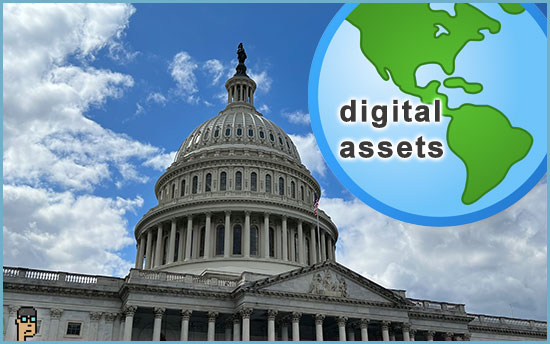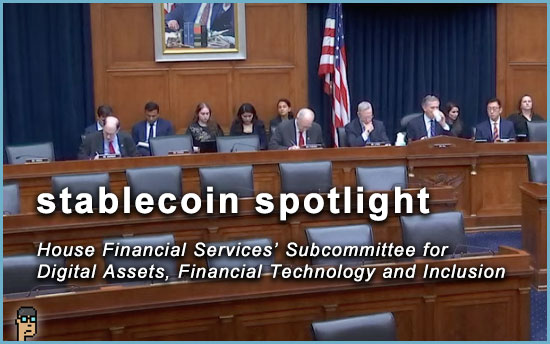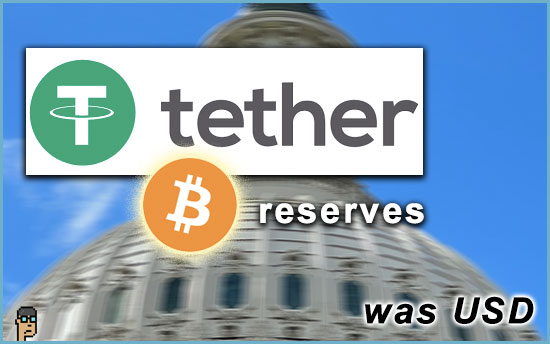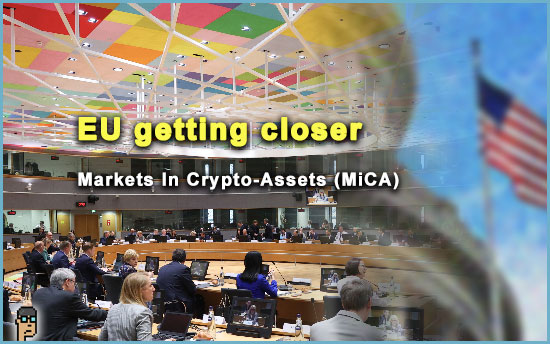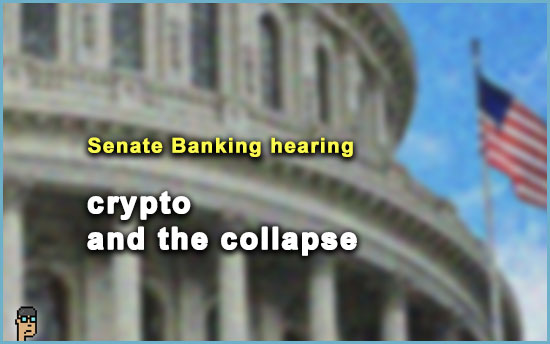As part of its Continuing Legal Education curriculum for its members, the New York City Bar Association brought together several hundred attendees for the “White Collar Crime Institute” yesterday.
Crypto and digital assets were a major focus of the agenda which included arguably the most important state regulator in digital assets – New York Department of Financial Services Superintendent Adrienne Harris – and panel participants comprising state and federal regulators as well as digital asset industry legal counsel including:
-
- Paul Grewal, Chief Legal Officer, Coinbase
- Shamiso Maswoswe, Chief of the Investor Protection Bureau for the Office of the New York State Attorney General
- Noah Perlman, Chief Compliance Offer, Binance,
- Alixandra Smith, Deputy Chief, Criminal Division, Eastern District of New York
- David Miller, counsel with Greenberg Traurig (panel moderator)
Below a selection of highlights from yesterday’s event…
Adrienne Harris, Superintendent, New York Department of Financial Services (NYDFS)
On NYDFS mandate:
“I have this dual mandate of regulation supervision and also economic development. I think the thing that surprises most people is to learn that New York both has the most rigorous regulatory framework for digital assets in the country -and probably in the world. If you look at investment in the US – venture capital and private equity investment in digital assets – most happens in New York, which is 2x Silicon Valley, 8x Miami (…). So we see that transparency, that regulatory certainty really helps protects consumers, but it also draws the economic activity.”
On other enforcement entities entering NYDFS’ jurisdiction (such as NY Attorney General):
“I think about it much more cooperatively. We work a lot with Federal law enforcement or U.S. Attorney’s offices, FinCEN, OFAC and after that, you know, the Attorney General in New York has some good authorities and she brought some good cases for unlicensed entities that have not come through the front door – so that’s a very important partnership. But, you know, the thing that’s really made New York a leader is that we have this clarity and transparency around the rules until now, as the federal government goes to put a framework in place for cryptocurrencies for stablecoins, they come to us….”
“There really isn’t a bill that comes through Congress that we’re not asked to weigh in on. There are jurisdictions here in the US and internationally, that come to DFS and say, “We want to provide that same clarity – maybe we want to have that same expertise – how do you build it?” As in the UAE – three weeks ago, there was [interest] to copy and paste what we’ve done in DFS.”
“Illinois, California, UK, Singapore, -they’re all really looking at what we do in [New York State in] different jurisdictions. So I think it’s really that transparency, that clarity and certainty…. We’ve issued guidance, so as the industry rapidly changes, we’re able to put guidance around activities… “Here are our regulatory expectations around blockchain analytics around. (…) And I think it’s that knowledge of the space -we’ve now built a team of 60 people that expertise that allows us to be so nimble go and given us a leadership position.”
Continue reading “Digital Assets And The Law Meet At White Collar Crime Institute”

